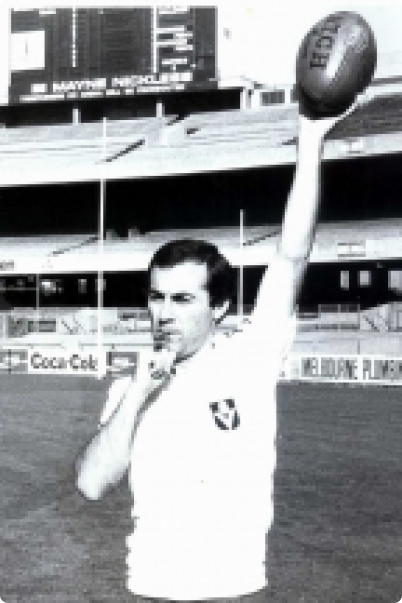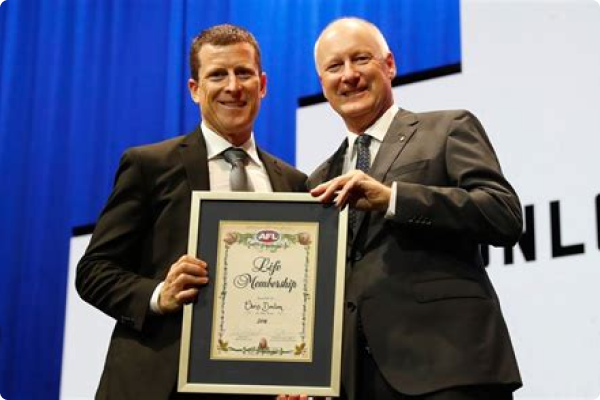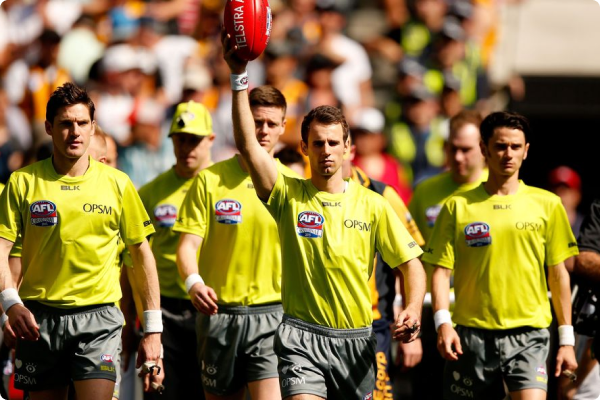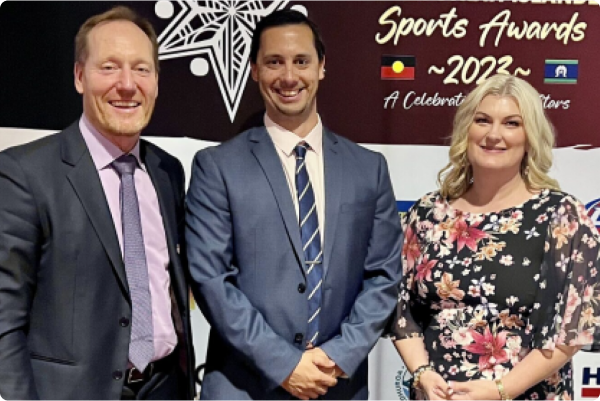About AFLUA
The objectives of the AFLUA are:
a) to represent the collective interest of AFLUA members to the AFL in matters relating to their current or past employment as an umpire by the AFL or VFL
(b) to act at all times in the spirit of consultation and democratic consensus, having regard to the collective interests of the Full Members, and where relevant, the collective interests of the Life Members and Associate Members;
(c) to provide assistance, including but not limited to, legal assistance, where the AFLUA in its absolute discretion deems appropriate in any matter arising out of or in connection with a Member’s, former Member’s or future Member’s involvement or participation in Australian Football as an Umpire including, without limitation, his or her employment or engagement by the AFL as an Umpire in or in connection with the AFL Competition or AFLW;
(d) to provide assistance and, where necessary, representation to Members, former Members and future Members in respect of their dealings with any national or state body responsible for or in any way connected with the administration of Australian football in Australia;
(e) to promote an umpiring career in Australian football as a stable, secure, worthwhile and rewarding career;
(f) to provide such assistance and undertake such activities as the AFLUA in its absolute discretion thinks fit;
(g) to maintain and promote the history, heritage and traditions of AFL umpiring and the AFLUA;
(h) to promote and advance umpiring and the game of Australian Football;
(i) to administer funds which the AFLUA may from time to time establish for the furtherance of any of these objectives; and
(j) to do all such other things as are incidental or conducive to the attainment of any of these objectives and the exercise of the powers of the AFLUA.

The Organisational Structure
The AFLUA is governed by an Executive Committee consisting of a president, a vice-president and three representatives – one from each category of umpiring (field, boundary and goal), a representative of the AFLW and the Chief Executive Officer.
The President
The President is responsible for the leadership of the AFLUA by:
- Setting the strategic direction to guide and direct the programs and services of the Association
- Approving and implementing strategy, operational plans, policies, procedures and budget
- Monitoring the activities of the Association to ensure they are in keeping with the AFLUA Rules, mission and objectives
- Presiding at all Executive Committee meetings and the Annual General Meeting


The Executive Committee Members
The Executive Committee Members are involved in the management of association affairs including representing their specific umpiring discipline by:
- Approving and implementing strategy, operational plans, policies, procedures and budget
- Proactively getting to know each member of their squad and facilitating effective communication between squad members and the Executive Committee
- Representing the interests of their respective disciplines as part of the broader umpiring group
The CEO
The CEO is responsible for providing strategic and operational leadership to ensure the Association meets the current and emerging needs of its membership base, by:
- Managing the AFLUA office, in accordance with the strategic direction as determined by the AFLUA Executive Committee, to ensure a high level of timely and effective programs and services are provided to current members and life members
- Advocating for, and representing, AFL contracted umpires in the management / resolution of workplace issues
- Ensuring compliance with, and interpretation of, the Collective Bargaining Agreement through ongoing dialogue with the AFL and members
- Ensuring that the financial affairs of the Association are managed in an effective and timely manner, including compliance with the AFLUA Rules and the Associations Incorporation Reform Act 2012

Certain services of the AFLUA’s operations are also outsourced, including finance, IT and website hosting.
Each state has State Representative Groups for AFL and AFLW Members. These facilitate effective communication with our Members nationally, being a conduit for local issues with the AFLUA Office and the Executive Committee.
Sub-committees and working groups are formed as required to deal with special projects and undertakings.
FURTHER READING: A full list of office bearers since 1909 can be found here.
